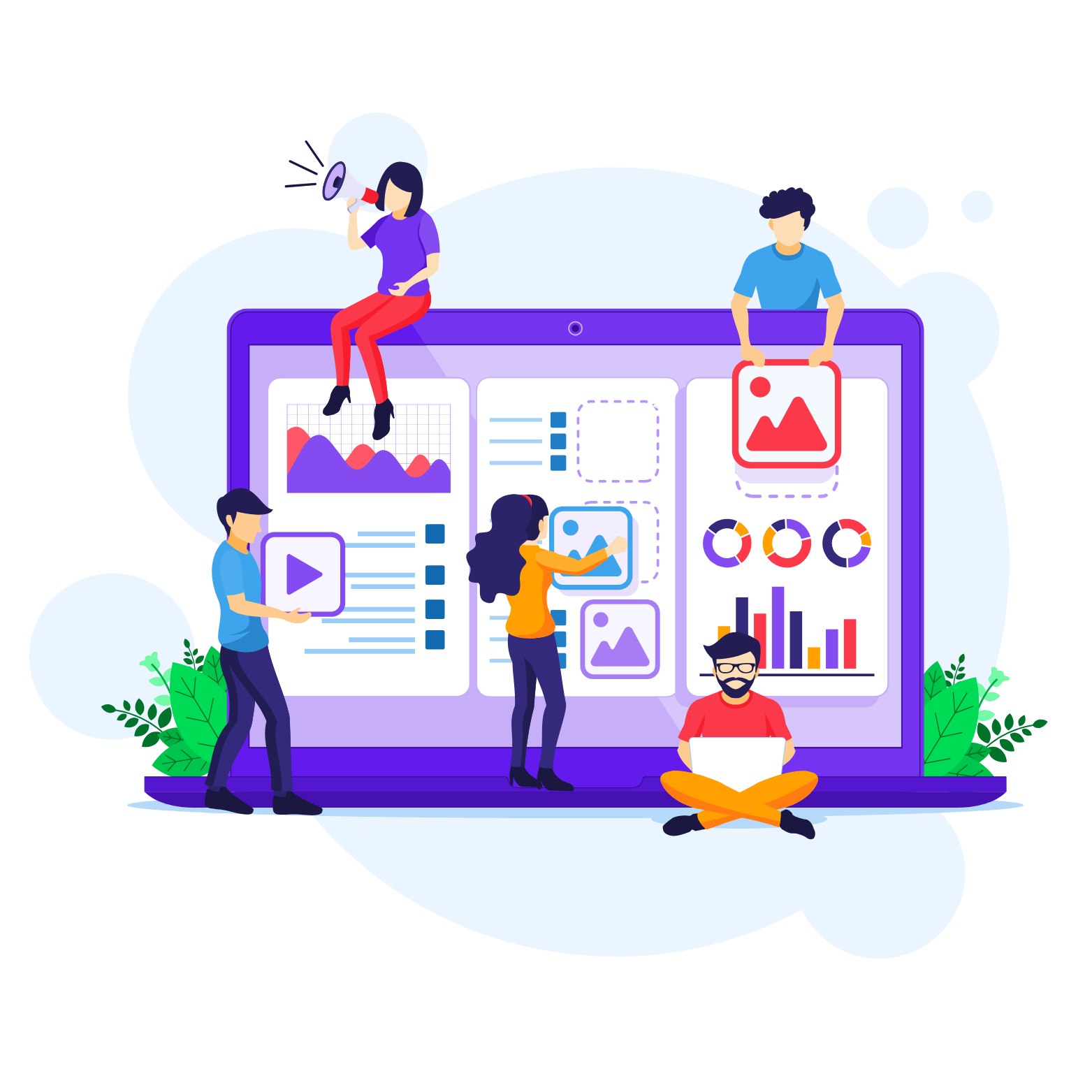The Evolution of Digital Marketing Strategies in 2025
Digital marketing strategies include all methods to promote brands, products, and services through online platforms and digital channels. In 2025, this covers everything from social media campaigns and influencer partnerships to voice search optimization, video marketing, and immersive technology experiences like augmented reality (AR) and virtual reality (VR). Today’s marketing strategy in the digital world relies on data, uses technology, and offers a personal touch to each customer.

The AI Revolution: Why It Matters
AI has evolved from a useful tool to the core of digital marketing strategies. AI systems now have an impact on data analysis in real time, have an influence on marketing task automation, have an effect on content creation, and have a bearing on consumer behavior prediction with great precision.
Rapid Adoption: More than 88% of marketers use AI tools to perform daily tasks, from improving content to chatbots for customer support and analytics that predict outcomes. Improved ROI: Companies that adopted AI early report ROI, conversion rates, and engagement improvements in the double digits. AI tools that generate content, like Jasper or Adobe Firefly, can create copy, images, and videos quicker and better than before.
Key Trends Shaping the Next Era
Tailored Experiences: Customers now want things made just for them. AI looks at how people act, what’s going on around them, and what they tell businesses . This helps companies send messages and offers that fit each person at every step.
Talking to Devices: As more people use smart speakers and gadgets you can talk to, it’s crucial to be ready for questions asked out loud (“no-typing SEO”). Experts think that by 2030 almost 30% of online shopping money will come from people using their voices to search. Marketers need to change how they work to fit with how people search by talking and the growing number of smart gadgets in homes.
Agentic and Autonomous Marketing: AI agents now have the ability to launch, optimize, and reallocate marketing campaigns with little human input. Marketers now focus on overseeing, governing, and creating rather than executing tasks.
Immersive Technology: AR and VR create new chances for brands to offer interactive experiences. Virtual try-ons demos you can step into, and brand-specific virtual worlds will boost engagement and lead to more sales.
Data Privacy and Ethical AI: As third-party cookies disappear and rules get stricter, brands must develop strong first-party data plans. They can’t ignore ethical AI frameworks clear consent methods, and a focus on keeping data safe.
Search Engine Optimization in the AI Age
Search engine optimization is still key, but it’s changed. Today’s SEO centers on:
Quality, Relevance, and Depth: Search engines like Google give top billing to thorough, expert content that meets users’ needs. This involves optimizing for featured snippets and using long-tail keywords to match specific searches.
Semantic Search: AI gets context, synonyms, and natural language, so it’s crucial to optimize for related keywords, questions, and what users want. This matters a lot for voice search SEO where people often speak as they would.
Technical Foundations: Websites that load fast, work well on mobile, have a clean structure, and use schema markup do better than others. This counts for both regular and voice search results.
User Experience: Engagement metrics—like time on page, bounce rate, and interactivity—have a direct impact on rankings. You should write content in a chatty style to boost engagement and meet what users expect for searches done by voice.
Local Search Optimization: It’s key to optimize for local searches for businesses with brick-and-mortar stores. A vital step in this process is to claim and fine-tune your Google My Business listing.
Practical Steps to Succeed
Embrace AI Tools: Use AI-powered search and analytics to automate tasks, create content, and make your campaigns better.
Make it personal: Split your audience into groups and use data to give each one a custom experience. This means creating chat-like content that clicks with the people you’re trying to reach.
Get ready for new ways to interact: Make sure your content works well with voice search, including Google Assistant and Amazon Alexa. Try out AR/VR where it makes sense to stay ahead in searches using multiple senses.
Be honest and do the right thing: Put data privacy first, ask users for permission, and use AI in a responsible way.
Keep learning: Build up your skills in understanding AI writing prompts, and digital ethics to keep your plan ready for the future. Stay in the loop about voice tech progress and how it changes online marketing plans.
Conclusion
Digital marketing is going through its biggest change ever. AI has an impact on how marketers provide more effective, productive, and captivating experiences. Companies that handle data , focus on user experience, and stay flexible in using new tech will outdo their rivals. In this competition, AI by itself won’t replace marketers. Instead, marketers who get good at AI and adjust their marketing strategy to fit new trends like voice search optimization will be the ones to lead the way forward.